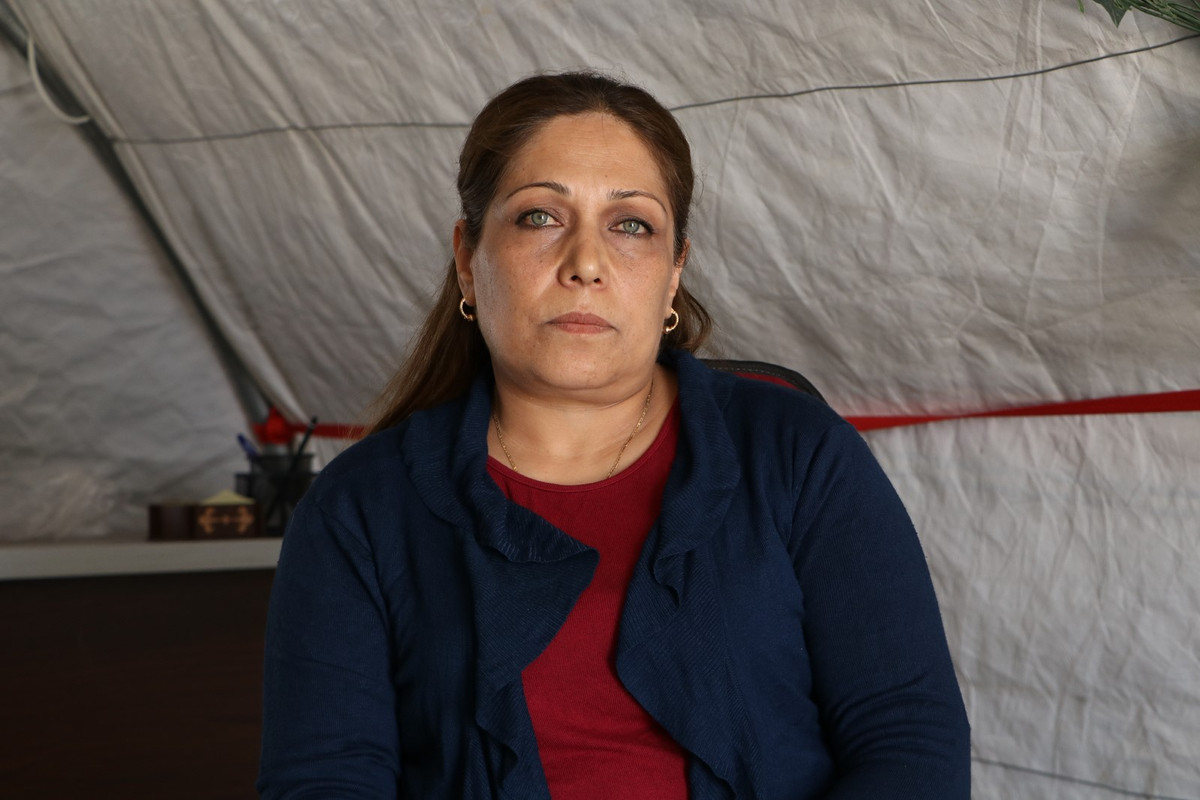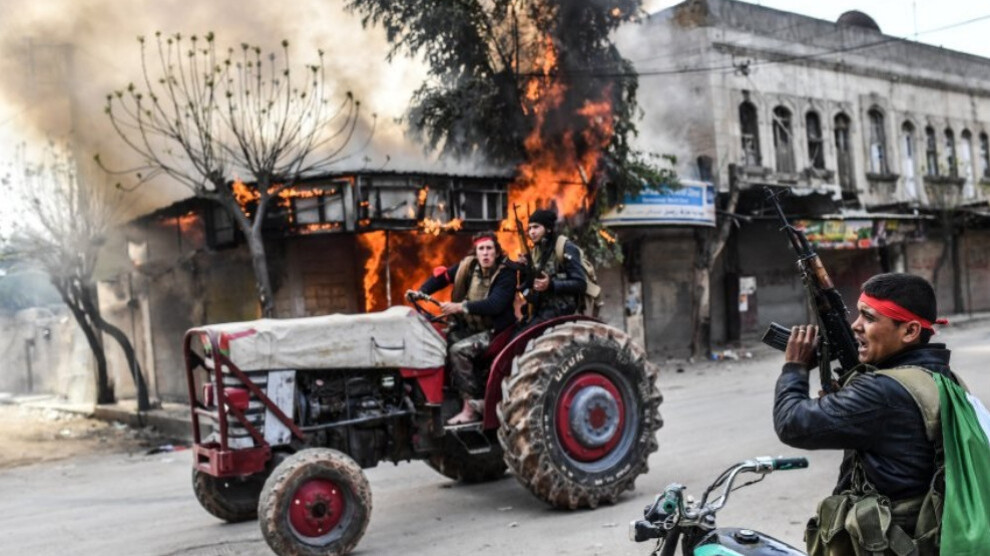The Syrian Observatory for Human Rights (SOHR) reported on May 6 that a member of Al-Sultan Suleiman Shah “Al-Amshat” faction raped a ten-year-old girl from Afrin. According to the report, the jihadist was escorting the girl and her mother on their way to Afrin when he raped the girl in gardens in the area before fleeing.
According to the Rojava-based Hawar News Agency (ANHA), the jihadist, Ehmed Memdûh (Ebû Deham), fled to the village of Kora in Jindires district after the sexual assault, which has drawn intense reaction from the local people.
Emîne Mela Hesen, Chairperson of the Afrin and Shehba Canton Women’s Committee, pointed out that the Turkish forces and allied mercenaries have been committing inhuman crimes against the Kurdish population in Afrin since they invaded the region in violation of international law in 2018.
Hesen stressed that women are the primary target of the crimes committed by the occupation forces, such as murder, kidnapping and rape. She appealed to international organizations for immediate intervention.
Hesen remarked that the demographic change taking place in the occupied territory since the Turkish invasion pointed to the separation of the region from Syrian land and annexation to Turkish land.

AFRIN OCCUPIED SINCE 2018
Afrin, also known as Çiyayê Kurmênc, is a city located in the western part of Rojava, 63 km away from Aleppo and 90 percent of its residents are Kurds (pre-occupation figures). Before it was occupied by the Turkish state after intense attacks in 2018, Yazidis, Arabs and Armenians lived in unity and solidarity in the city, which has 6 districts and nearly 400 villages… Despite being exposed to a massive migration wave from Syria's other cities such as Aleppo, Deraa, Homs, Idlib, Hama and Raqqa in 2011, the city maintained peace and stability for Syria as well. It was also a potential economic hub.
The hegemonic powers that regarded the democratic management model in North-East Syria as a threat to their own interests, found a pretext and made the fascist Turkish Republic to invade Afrin on January 20, 2018 under the name "Operation Olive Branch". With this attack, fascist chief Erdogan was planning to invade the city with his army in a few days. However, an outstanding resistance was put up for 58 days under the leadership of YPG and YPJ forces with a broad participation of the people.
Afrin Canton was the westernmost canton of Rojava and North and East Syria, home to 200,000 ethnic Kurds. Though the population was overwhelmingly Kurdish, it was home to diverse religious groups including Yazidis, Alawites and Christians alongside Sunni Muslims.
On 20 January 2018, Turkey launched air strikes on 100 locations in Afrin, as the onset of an invasion they dubbed ‘Operation Olive Branch.’
The Turkish Airforce indiscriminately shelled civilians as well as YPG/YPJ positions, while a ground assault was carried out by factions and militias organised under the umbrella of the Turkish-backed National Army.
By 15 March, Turkish-backed militias had encircled Afrin city and placed it under artillery bombardment. A Turkish airstrike struck the city’s only functioning hospital, killing 16 civilians.
Civilians fled and the SDF retreated, and by 18 March Turkey was in de facto occupation of Afrin. Between 400 and 500 civilians died in the invasion, overwhelmingly as a result of Turkish bombing. Other civilians were summarily executed in the field.
Prior to the Turkish invasion, Afrin had been one of the most peaceful and secure parts of Syria, virtually never seeing combat during the civil war bar occasional skirmishes between YPG/YPJ and jihadi forces on its borders. As a result, Afrin offered peaceful sanctuary to over 300,000 internally displaced people from elsewhere in Syria.
Turkey has more than 50 military bases in the city which has been under occupation for more than 5 years. Moreover, various crimes including kidnapping, pillage, theft, torture, rape, cultural historical genocide and demographic change have been committed in almost all the streets of the city. Around 700 civilians have been tortured and killed, and around 9,000 others have been kidnapped. These figures cover only the crimes that were reported. There are also those whose whereabouts remain unknown. Furthermore, many media outlets and human rights organizations revealed that more than 100 historical sites were plundered and nearly 400,000 trees were cut down in the city.
















